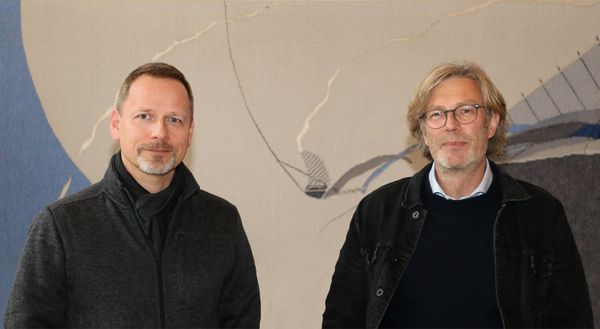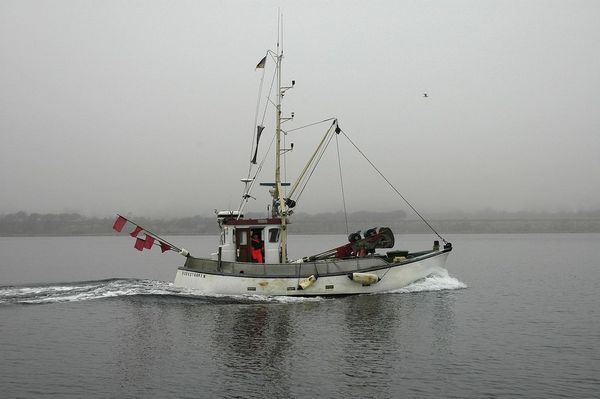Comment
Shaping structural change in coastal fisheries actively
Gerd Kraus, Christopher Zimmermann (Wissenschaft erleben 2020/2)
Coastal fisheries in the North Sea and Baltic Sea are in serious crisis. The directors of the Thünen Institutes of Sea Fisheries and Baltic Sea Fisheries, Dr Gerd Kraus and Dr Christopher Zimmermann, comment on the situation.
Coastal fisheries in the North Sea and Baltic Sea are in serious crisis, even though overfishing has declined drastically since the turn of the millennium. There are many factors that threaten the existence of this fishery, which is part of the cultural identity of the coastal regions: the effects of climate change are impairing the productivity of individual, particularly important species. Added to this are increasing losses of fishing grounds due to the growth of the offshore energy sector and increasing demands for space for nature conservation, stricter legal requirements for the often outdated vessels, the correspondingly difficult search for successors and the poor public image of fishing. On the Baltic coast, the return of grey seals is making set net fishing increasingly difficult.
The drastic quota cuts since 2020 for Baltic herring, cod and North Sea cod, extreme fluctuations in catches of North Sea brown shrimp, Corona-related sales problems and more recently the drastic increase in fuel prices have led to a further massive worsening of the situation. Neither for herring of the western Baltic nor for the cod of the southern North Sea is it to be expected that catches will return to levels close to the those of past decades.
The small coastal fisheries are generally unable to move to other regions or to target other species. In the meantime, governmental bridging aid and decommissioning premiums are available. This can help those affected, but it also accelerates the decline of the sector: more and more fishermen are giving up or switching to part-time fishing, as can currently be observed in the Baltic Sea in particular.
Since the segment of full-time family businesses increasingly disappears, a few large, efficient companies remain, as well as numerous part-time fishermen with their far less stringent regulations and controls. This has an impact on the land-based infrastructures: Some ports no longer serve as basis for the commercial fishery. Producer organisations that used to provide support functions such as transport, ice and bookkeeping are disappearing, because they cannot be adequately financed by the part-time fishermen, who mainly rely on direct marketing. The indirect consequences reach far beyond the fisheries sector. Artisanal coastal fishing is formative for the culture and way of life on the coast and for this reason alone has considerable regional economic significance.
New challenges for fisheries policy
The continuation of these trends will also pose new challenges for fisheries policy: The continuation of fishing in the area by part-time fishermen strengthens tourism, but this form of fishing is difficult to monitor. This increases the risk of unsustainable exploitation of fish stocks - a phenomenon well known from the Mediterranean. This increases the pressure on the government to tighten the rules for part-time and recreational fishing as well, and foreseeably ends up in a permanent political dispute.
Is this the future we want? That depends on the alternatives. Therefore, it makes sense to develop different policy options and examine how they affect the future of coastal fisheries and coastal regions. The end result would have to be a concept that shows a better long-term perspective for coastal fisheries and the fish stocks and that is both financially and administratively feasible.
Isn't that taking far too long? No doubt, structural change is in full swing and politics cannot always wait until carefully elaborated concepts for the future are available. On the other hand, the fundamental questions about the future of coastal fisheries will remain on the agenda for longer time, because no convincing perspective can be developed with emergency measures alone. Therefore, we aim to focus our research on solutions. For this, we need the competences of different research disciplines, as well as the expertise and creativity of the business enterprises and the local administration.
Dr Gerd Kraus is director of the Thünen Institute of Sea Fisheries, Dr Christopher Zimmermann is director of the Thünen Institute of Baltic Sea Fisheries.



![[Translate to English:] Logo des Bundesministerium für Ernährung und Landwirtschaft](/media/allgemein/logos/BMEL_Logo.svg)